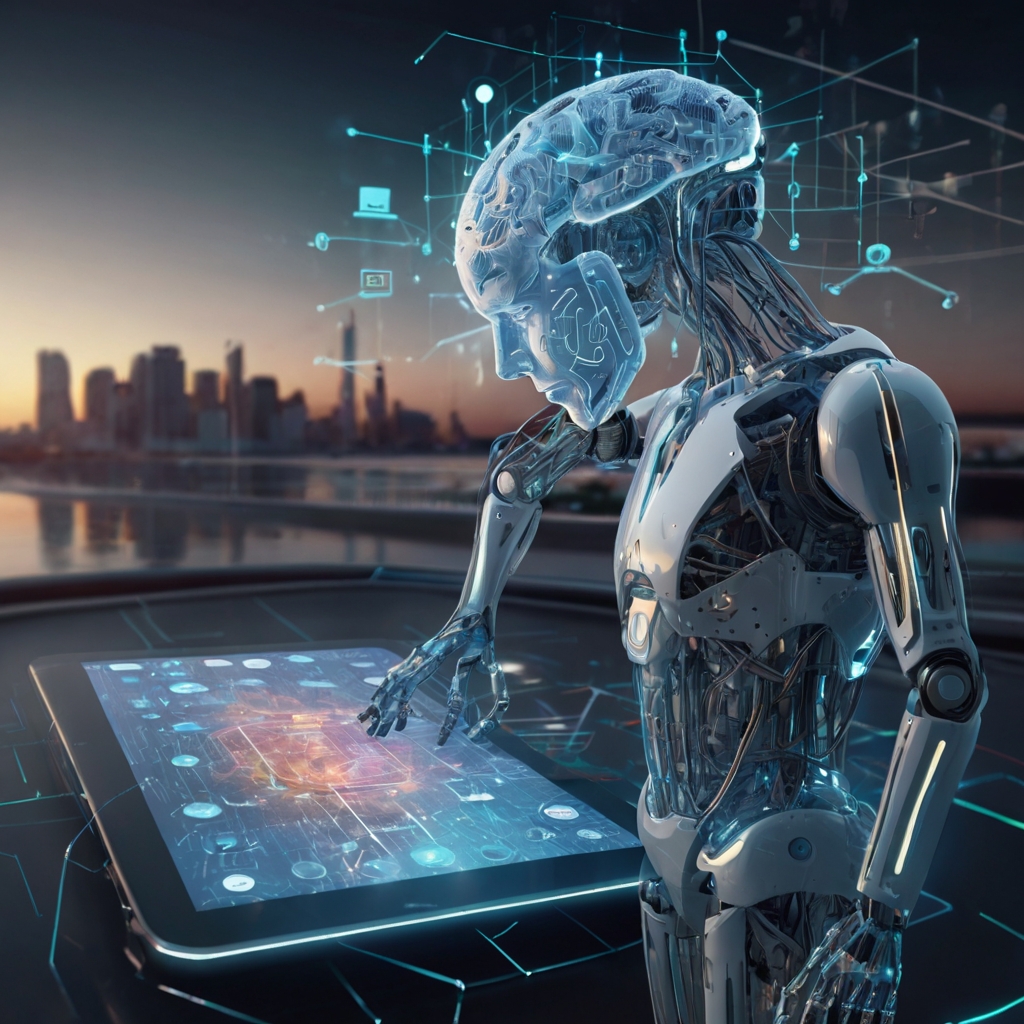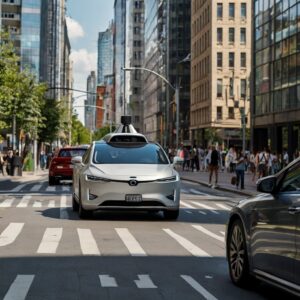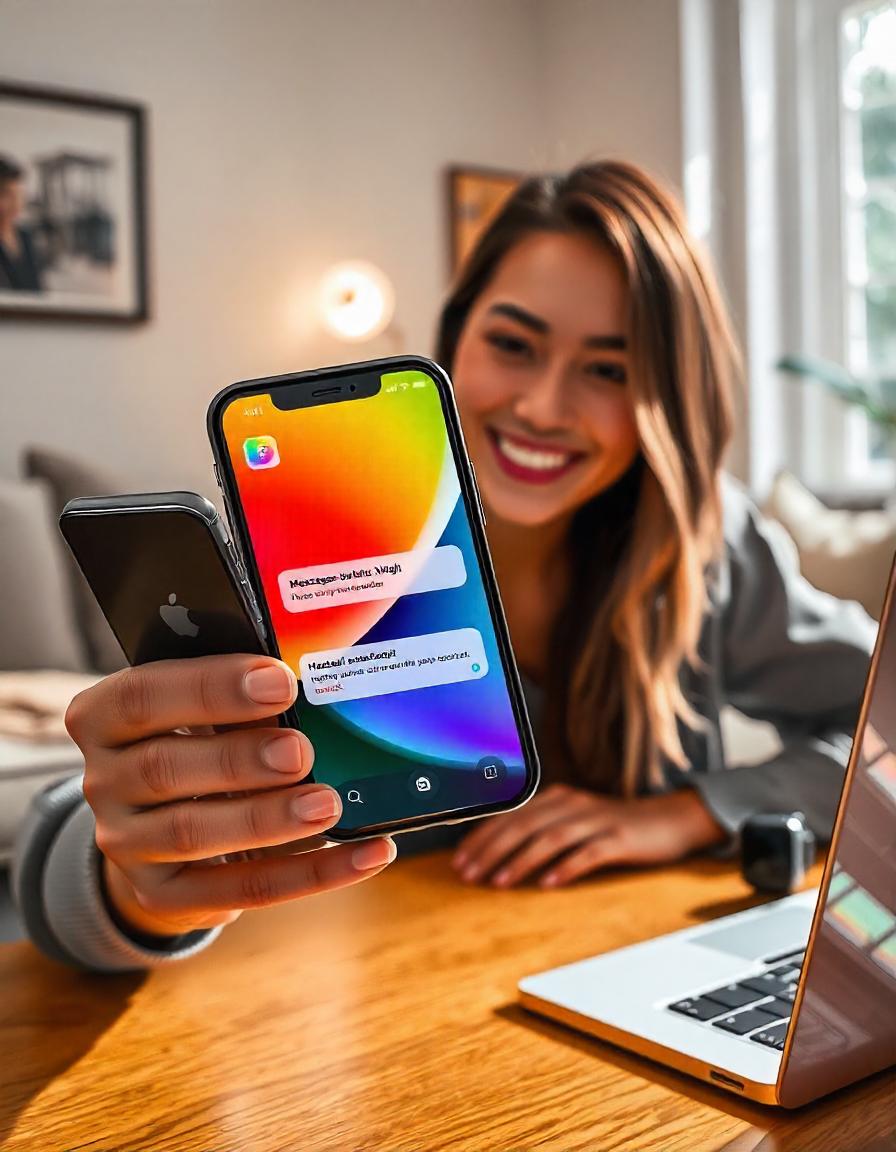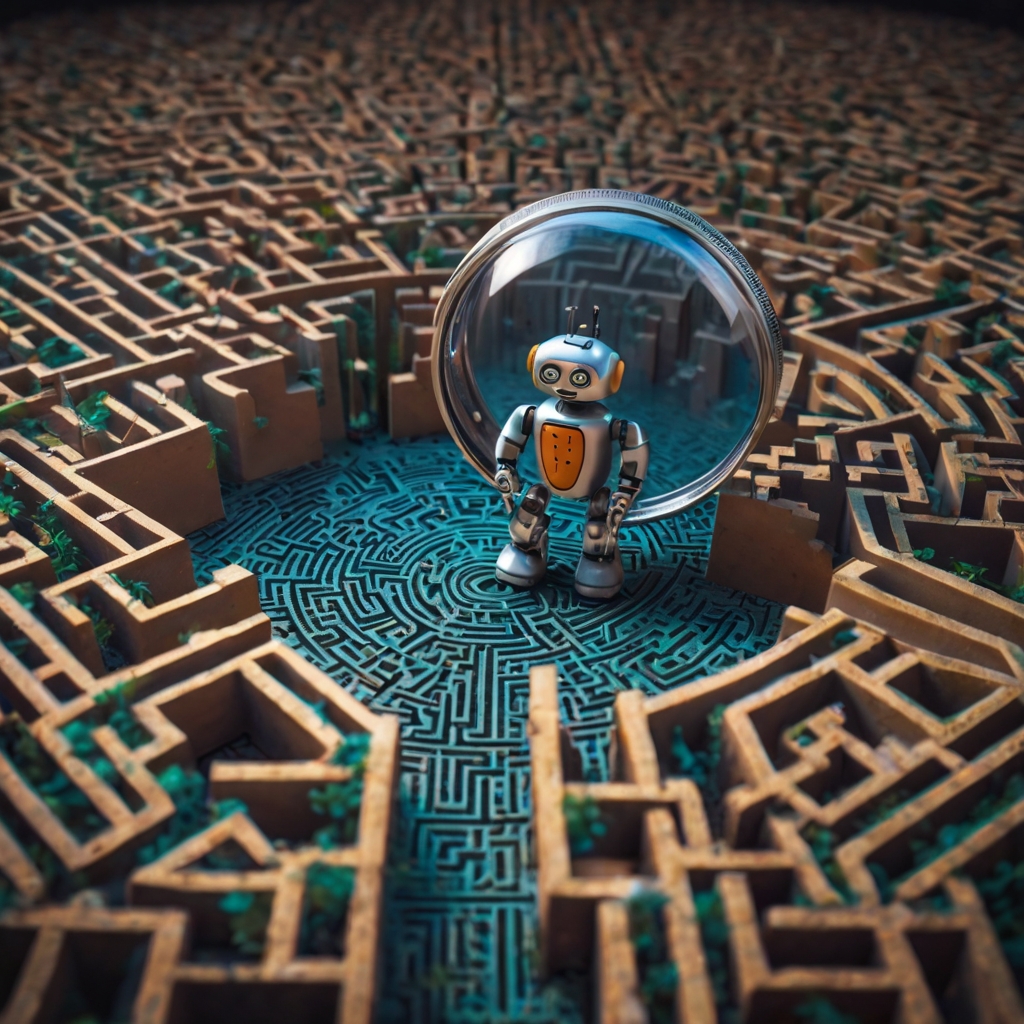How AI is Changing Our Daily Life

How AI is Changing Our Daily Life
AI is Everywhere!
AI (Artificial Intelligence) is not just science fiction anymore. It is part of our daily life. We use AI when we ask Siri or Alexa a question. It helps doctors find diseases faster. It even decides what videos show up on our social media feeds. But how does AI help in real life? Let’s find out.
AI in Healthcare: Saving Lives and Making Work Easier

Doctors and hospitals use AI to find diseases early and help in surgeries.
- Finding Diseases Early: AI can look at X-rays and MRIs to find problems like cancer before they get worse. For example, Google’s DeepMind AI can check eye scans and detect over 50 eye diseases as accurately as doctors.
- Helping in Surgeries: AI-powered robots help doctors perform surgeries with better precision. The Da Vinci Surgical System allows doctors to operate using tiny tools, which means smaller cuts and faster healing.
- AI Chatbots for Health Advice: Apps like Ada and Woebot talk to people, answer health questions, and even help with mental health issues.
- Creating New Medicines: AI studies thousands of chemicals quickly to find which ones might work as new medicines. This speeds up the process of making new drugs for diseases like COVID-19.
AI in Finance: Keeping Your Money Safe
Banks and financial companies use AI to prevent fraud, give financial advice, and improve customer service.
- Stopping Fraud: AI watches millions of transactions to find any strange activity. If a bank thinks a transaction is suspicious, it alerts the customer immediately. PayPal uses AI to catch fraud in real-time.
- Helping with Investments: AI predicts stock market trends and suggests good investments. Many investors use AI-powered trading systems to make better decisions.
- Personal Finance Help: Apps like Erica from Bank of America use AI to give tips on saving and spending money wisely.
- Faster Loan Approvals: AI checks a person’s credit history and decides quickly whether they qualify for a loan or not.
AI in Education: Making Learning Fun and Smart

Schools and students use AI to make learning easier and more fun.
- Customized Learning: AI-powered platforms like Squirrel AI create lessons based on what a student knows and what they need to learn next.
- Faster Grading: AI tools like Gradescope help teachers grade tests and homework quickly, so they have more time to teach.
- Language Translation: AI tools like Google Translate and Duolingo help students learn new languages faster.
- AI Tutors: AI chatbots answer students’ questions anytime, so they don’t have to wait for a teacher.
AI in Business and Marketing: Making Companies Smarter
Companies use AI to improve customer service, sales, and decision-making.
- AI Chatbots for Customer Service: Many websites use AI chatbots to answer customer questions instantly. Zendesk Answer Bot helps businesses handle customer support without human help.
- Predicting What Customers Want: AI studies customer behavior to help companies create better ads and suggest products they might like.
- AI Writes Content: AI tools like Jasper help businesses create blog posts, social media captions, and ads quickly.
- Better Customer Management: AI-powered CRM systems help businesses keep track of customers and improve sales strategies.
AI in Transportation: Changing How We Travel

AI makes transportation safer and more efficient.
- Self-Driving Cars: Companies like Tesla and Waymo are working on self-driving cars to reduce accidents caused by human error.
- Smarter Traffic Lights: AI controls traffic signals to reduce jams and make driving smoother in smart cities.
- Better Ride-Sharing Services: Uber and Lyft use AI to match riders with drivers and find the best routes.
- AI in Delivery Services: AI helps companies like Amazon predict delivery times and choose the fastest shipping routes.
AI in Cybersecurity: Keeping Us Safe Online
AI protects us from hackers and cyber threats.
- Detecting Threats: AI finds security problems quickly and stops hackers from stealing data.
- Face and Fingerprint Recognition: Many smartphones and workplaces use AI for security, like unlocking phones with face or fingerprint scans.
- Faster Cybersecurity Responses: AI can take action automatically when a cyber threat appears, reducing the damage.
- Preventing Online Fraud: AI detects fraud in online shopping and banking, keeping user accounts safe.
AI in Entertainment: Making Fun More Personalized
AI helps us discover movies, music, and games we like.
- Movie and Music Recommendations: AI suggests what to watch or listen to based on past choices.Netflix and Spotify use AI to suggest movies and songs you might like..
- AI Creates Music and Art: AI can compose music, paint pictures, and even write stories.
- Smarter Video Games: AI makes game characters act more realistically, making gameplay more interesting.
- Deepfake Videos: AI can create realistic videos of people saying or doing things they never actually did. This can be fun but also risky if misused.
The Future of AI: What’s Next?
AI is improving fast, and while it brings many benefits, it also comes with challenges.
- Fairness and Ethics: AI can sometimes be biased. Developers need to make AI fair for everyone.
- Will AI Take Jobs?: Some jobs will disappear, but AI will also create new jobs that need human creativity and problem-solving skills.
- How Can We Use AI Responsibly?: Governments and companies must set rules to ensure AI helps people instead of harming them.
AI is everywhere, making our lives easier, faster, and safer. It helps in healthcare, finance, education, transportation, and entertainment. While AI has challenges, it also has endless possibilities. If we use AI wisely, it will continue to make the world a better place.
FAQs
- How does AI affect my daily life?
- AI helps with online shopping, smart assistants, bank security, and even suggesting what movie to watch next.
- Is AI dangerous?
- AI has risks, like job loss and privacy issues, but if used responsibly, it brings more benefits.
- Can AI think like a human?
- AI can learn and solve problems, but it doesn’t have emotions or real understanding like humans do.
- Will AI take my job?
- AI might replace some jobs, but it will also create new ones that need human creativity.
- How can I learn more about AI?
- You can read books, take online courses, or explore AI-powered tools .




